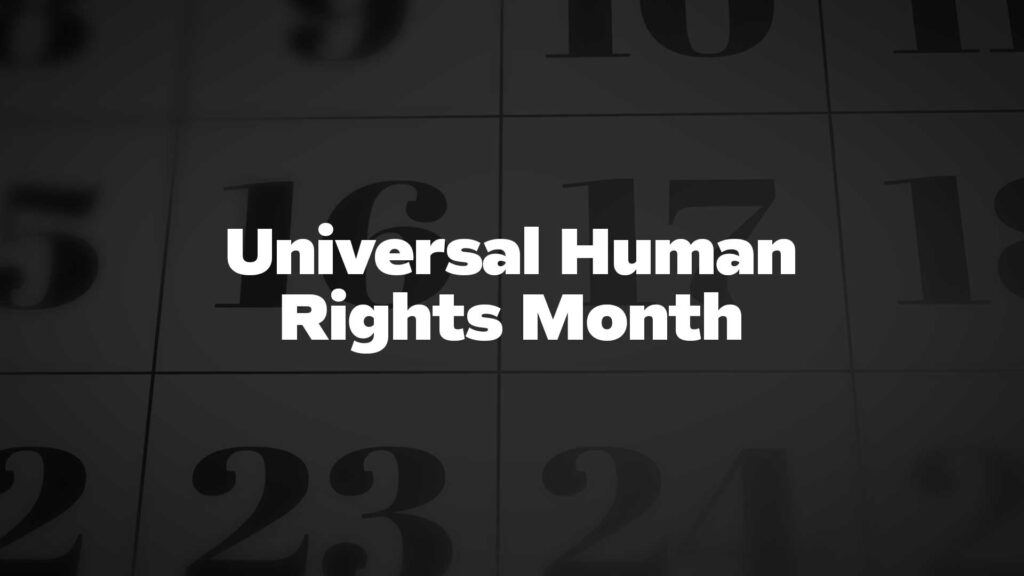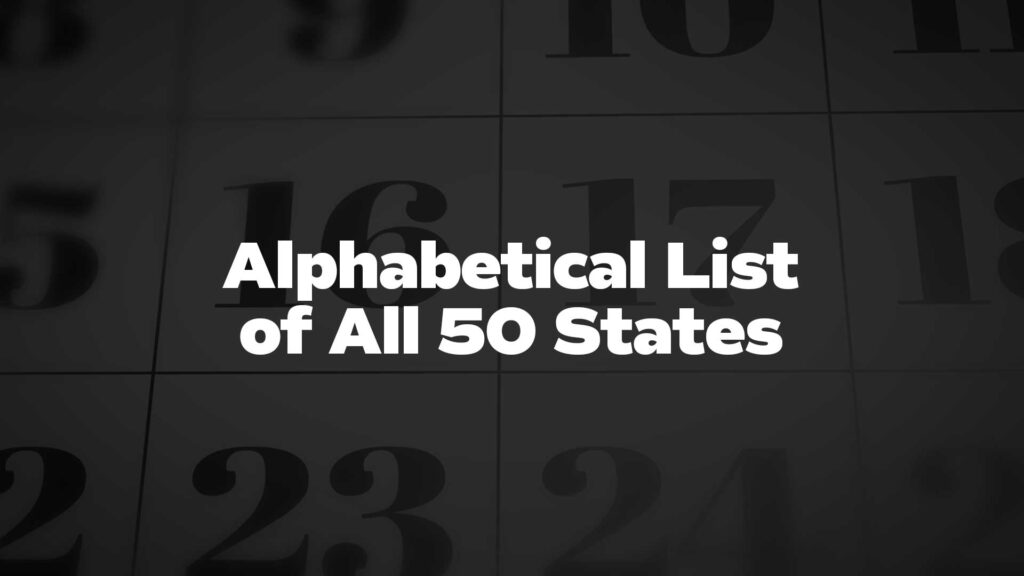
Week 43 of 2021
Sunday Oct 24, 2021
Monday Oct 25, 2021
Tuesday Oct 26, 2021
Wednesday Oct 27, 2021
Thursday Oct 28, 2021
Friday Oct 29, 2021
Saturday Oct 30, 2021
"Official List" of U.S. National Days
oops did we mess up and not categorize these wonderful posts? We will probably catch these strays eventually maybe you should drop us a line.

Universal Human Rights Month, observed every December, is a time to reflect on the fundamental rights and freedoms that belong to every individual, regardless of race, gender, nationality, or background. This month-long observance encourages advocacy, education, and action to protect and promote human rights worldwide. In this article, we explore the significance of Universal Human Rights Month, ways to get involved, and how businesses can support this global cause.
Human rights are the foundation of freedom, dignity, and peace in society. The observance of this Month highlights the importance of upholding the principles established in the Universal Declaration of Human Rights (UDHR), adopted by the United Nations on December 10, 1948. This global celebration raises awareness about pressing human rights issues, including discrimination, inequality, and social injustices while encouraging collective efforts toward positive change.
There are various meaningful ways to engage in this important observance and promote human rights for all:
Organizations have a unique opportunity to drive change and champion human rights through their policies and initiatives:

Below is a list U.S. States in Alphabetical Order and Admission into statehood.
This list U.S. States in Alphabetical Order is formatted so it can be easily cut and pasted into another document.
Alabama
Alaska
Arizona
Arkansas
California
Colorado
Connecticut
Delaware
Florida
Georgia
Hawaii
Idaho
Illinois
Indiana
Iowa
Kansas
Kentucky
Louisiana
Maine
Maryland
Massachusetts
Michigan
Minnesota
Mississippi
Missouri
Montana
Nebraska
Nevada
New Hampshire
New Jersey
New Mexico
New York
North Carolina
North Dakota
Ohio
Oklahoma
Oregon
Pennsylvania
Rhode Island
South Carolina
South Dakota
Tennessee
Texas
Utah
Vermont
Virginia
Washington
West Virginia
Wisconsin
Wyoming
1. Delaware
2. Pennsylvania
3. New Jersey
4. Georgia
5. Connecticut
6. Massachusetts
7. Maryland
8. South Carolina
9. New Hampshire
10. Virginia
11. New York
12. North Carolina
13. Rhode Island
14. Vermont
15. Kentucky
16. Tennessee
17. Ohio
18. Louisiana
19. Indiana
20. Mississippi
21. Illinois
22. Alabama
23. Maine
24. Missouri
25. Arkansas
26. Michigan
27. Florida
28. Texas
29. Iowa
30. Wisconsin
31. California
32. Minnesota
33. Oregon
34. Kansas
35. West Virginia
36. Nevada
37. Nebraska
38. Colorado
39. North Dakota
40. South Dakota
41. Montana
42. Washington
43. Idaho
44. Wyoming
45. Utah
46. Oklahoma
47. New Mexico
48. Arizona
49. Alaska
50. Hawaii
A list of U.S. states in alphabetical order can be useful in a variety of scenarios, including:
Federal Reserve Bank and American National Bank Holiday Schedule for 2025:
| New Year’s Day | Wednesday, January 1, 2025 |
| Birthday of Martin Luther King, Jr. | Monday, Jan 20, 2025 |
| Presidents Day | Monday, February 17, 2025 |
| Memorial Day | Monday, May 26, 2025 |
| Juneteenth | Thursday, June 19, 2025 |
| Independence Day | Friday, July 4, 2025 |
| Labor Day | Monday, September 1, 2025 |
| Columbus Day | Monday, October 13, 2025 |
| Veterans Day | Tuesday, November 11, 2025 |
| Thanksgiving Day | Thursday, November 27, 2025 |
| Christmas Day | Thursday, December 25, 2025 |